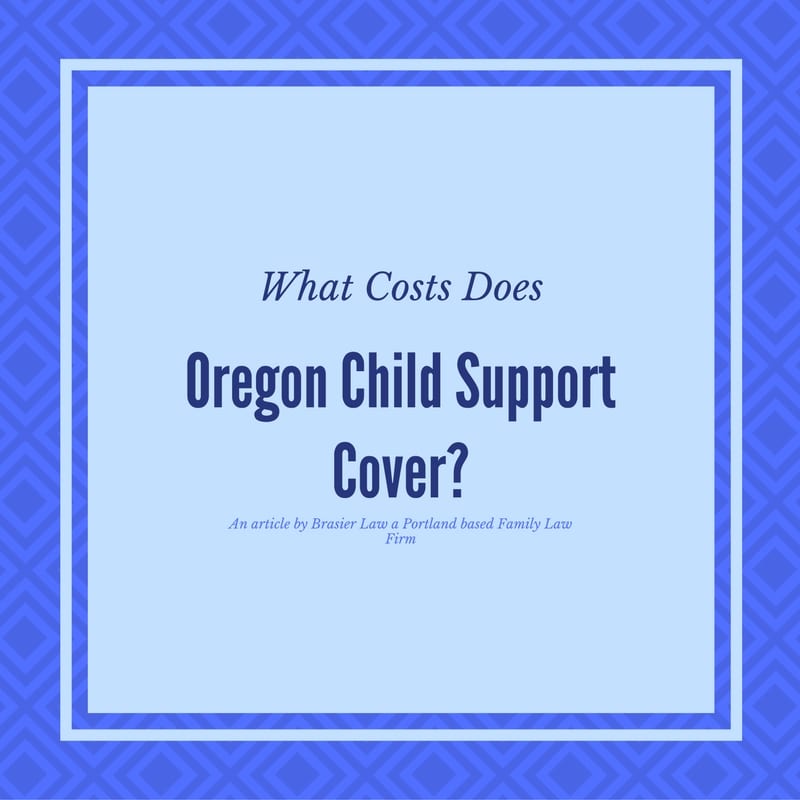
The question often comes up, “what exactly is child support supposed to pay for in Oregon”. This typically comes up when one parent asks the other, who is already paying a monthly Oregon child support payment, to also pay for a child’s activity fees, or back to school costs. I’ll do my best here to give some guidance on this question.
In Oregon child support is paid to cover all costs in most cases, with the exception of medical bills.
In Oregon, child support is calculated to be the total payment that Parent B should pay to Parent A each month to cover the child’s needs. The only exception to this is medical bills. This means that if Parent A has custody of the kids, and Parent B is ordered to pay $552 a month in child support, that Parent A needs to plan on using a portion of that $552 to pay for the school activity fees and other things that come up. It is not typically appropriate for the person receiving child support to ask for more money from the other person on top of what they already pay.
“The only exception to this is medical bills.”
I understand this can be a hard answer to hear, because child support typically doesn’t even come close to covering the cost of raising a child. It is an imperfect system, but under the law, it is not Parent B’s responsibility to pay more than their monthly obligation.
It can be a really good idea to voluntarily help out in covering these costs, particularly if Parent B has enough money to pay more. However, it is not legally right for Parent A to demand more money for any extra costs, with the only exception being medical bills.
You can try and arrive at an agreement during the negotiation process to help cover these other costs and place them in a well thought out child support order.
Most court orders for child support provide that the parties will split medical costs that are not reimbursed, like co-pays or insurance deductibles for the kids’ medical needs. That is typically the only exception unless your court order specifically provides for others. It is fair game to negotiate the handling of these extra costs as part of a well thought out child support order and include this in an agreement, but unless your order lays out specific terms for this, Parent B is not responsible for extra costs.

